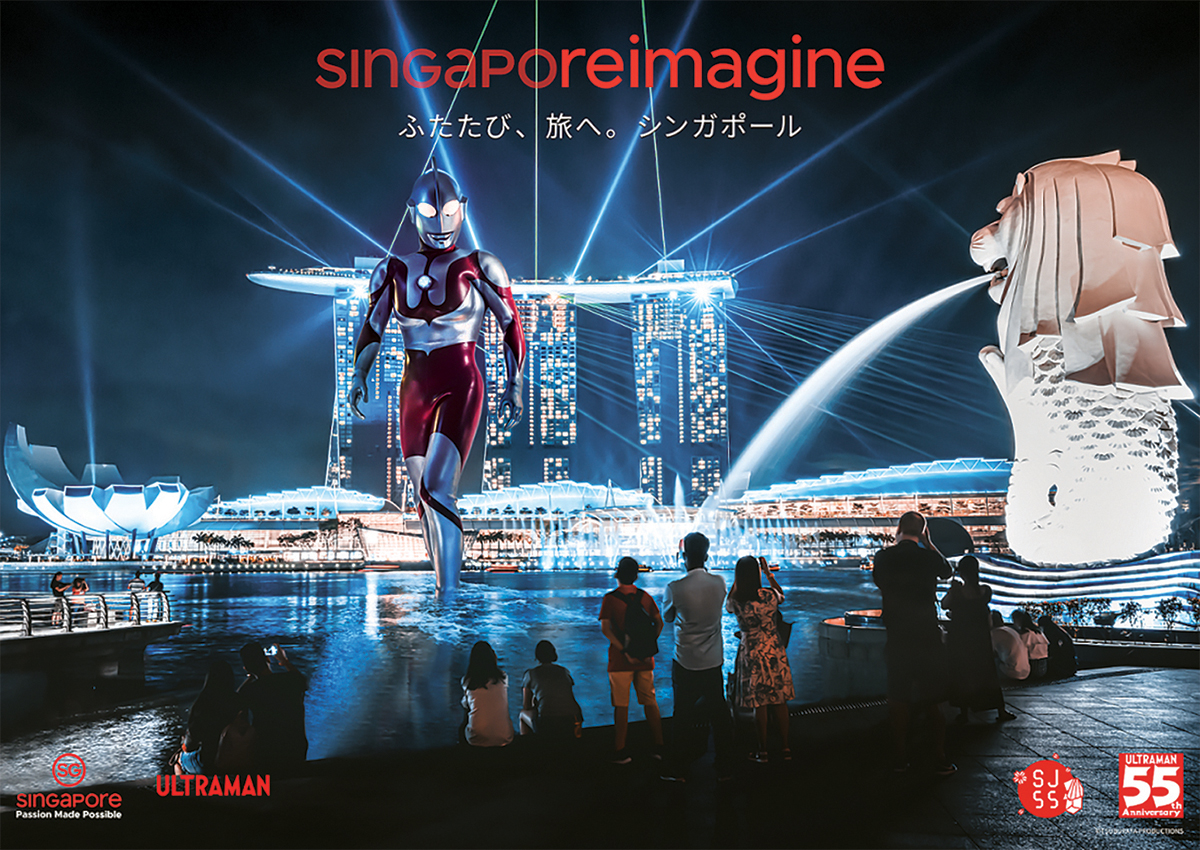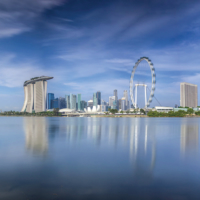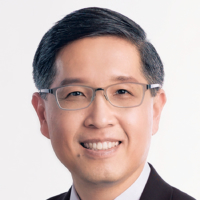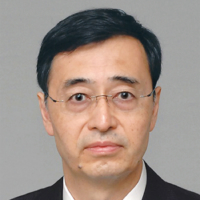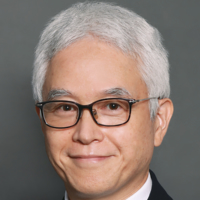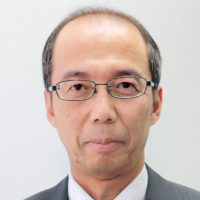As countries begin to recover from the pandemic, Singapore is preparing to strengthen its economy and reinforce its international partnerships.
Celebrating 55 years of bilateral relations this year, Singapore and Japan are actively seeking ways to consolidate their relationship while playing increasingly important roles on the world stage.
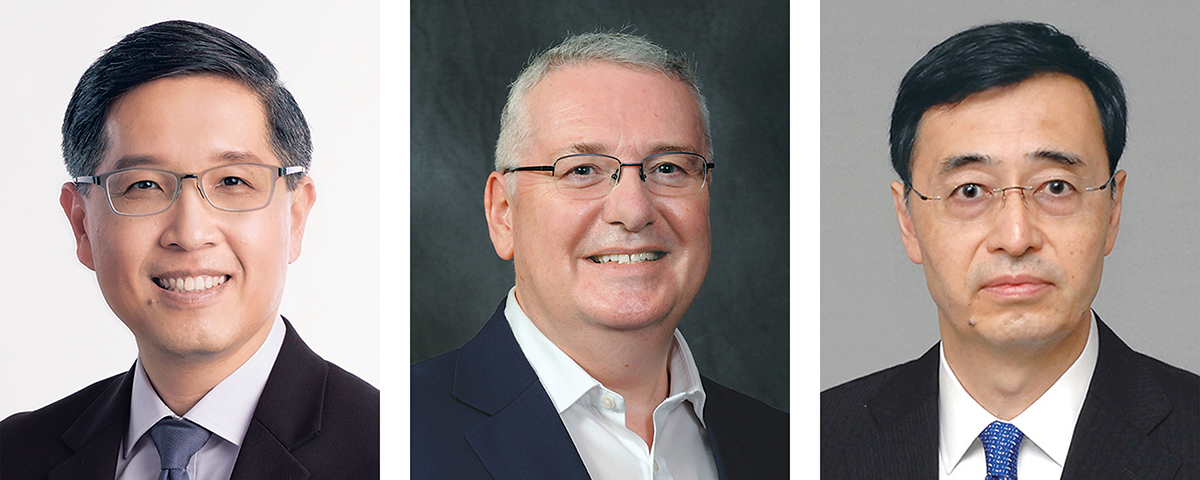
Center: Victor Mills, Chief Executive of the Singapore Chamber of Commerce and Industry | © SCCI
Right: Jun Yamazaki, Ambassador of Japan to Singapore | © JAPANESE EMBASSY
Progressive business environment
“Singapore is an attractive business hub that offers many competitive advantages for international companies, be it as a global hub or as a gateway to ASEAN (the Association of Southeast Asian Nations) and Asia,” said Lam Yi Young, chief executive officer of the Singapore Business Federation.
“We offer a stable business and political environment with a fair and transparent legal system. As a recognized financial hub, we have a progressive environment for businesses to raise and mobilize capital. As a signatory to various bilateral and multilateral free trade agreements, Singapore supports the open and free flow of goods, services and people.”
ASEAN
The ASEAN region is expected to become the world’s fourth-largest economy by 2030 and Singapore lies at the very heart of this dynamic economic region.
“Singapore already plays a very active role in ASEAN and across the wider region,” said Victor Mills, chief executive of the Singapore Chamber of Commerce and Industry.
“It is a major investor in many economies and its hub status for wealth management, business and legal services remains in demand. Even more importantly, its growing importance as an innovation hub, and one with finance, is relevant to the region and will continue to be even more relevant in the coming decades.”
Government
“Japan and Singapore continue to be important and valuable partners,” said Japanese Ambassador to Singapore Jun Yamazaki.
“Japan is Asia’s largest investor in Singapore, while Singapore is the largest investor in Japan among Asian countries. Moreover, Japan and Singapore are key members of the Comprehensive and Progressive Agreement for Trans-Pacific Partnership, since they are the chairman of this year’s and next year’s CPTPP Commission, respectively.”
CPTPP
In addition to Australia, Brunei, Canada, Chile, Malaysia, Mexico, New Zealand, Peru and Vietnam, Singapore and Japan continue to be active members of the CPTPP trade agreement. Today, the eleven signatories represent 13.4% of global gross domestic product (US$13.5 trillion).
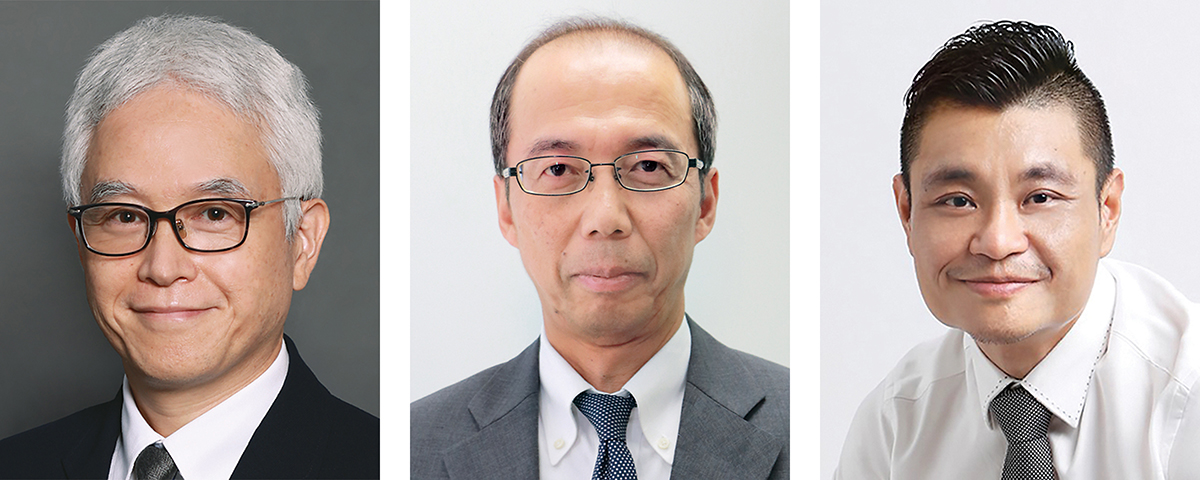
Center: Takeshi Oshima, President of the Japanese Chamber of Commerce and Industry, Singapore | © JCCI
Right: Markus Tan, Regional Director for North Asia at the Singapore Tourism Board | © STB
JETRO
“Since its establishment in Singapore in 1959, the Japan External Trade Organization has served as a bridge between the companies of the two countries,” said Eiji Hisatomi, managing director of JETRO Singapore.
“Because of this, we have established a solid reputation in both the Japanese and Singaporean business communities. Since the outbreak of COVID-19 last year, business between the two countries has moved towards an online style and although doing business online is convenient and efficient, it is only possible if there is trust between the two sides.”
‘Society 5.0’
As trusted partners, Singapore and Japan continue to work closely together and Japan’s “Society 5.0” initiative is driving social change and creating opportunities for technological innovations and increased sustainability in both countries. Singapore’s advances toward Society 5.0 are benefiting people, businesses and society and associated collaborations with Japan are helping to ensure Singapore becomes a ”future-ready” economy.
“In Singapore, where the world’s most advanced information technologies are found, we are hopeful that the initiatives of Japanese companies will deepen in partnership with Singaporean companies in a wide range of industries,” said Takeshi Oshima, president of the Japanese Chamber of Commerce and Industry, Singapore.
One of the world’s major cities
Singapore has come a long way since its founding as a British trading post in 1819 by Sir Stamford Raffles.
Raffles Hotel, the Marina Bay Sands, the Singapore Flyer, the Buddha Tooth Relic Temple, Botanic Gardens and Gardens by the Bay, as well as Orchard Road and Resorts World Sentosa are just some of the attractions that bring people to Singapore.
“Due to the COVID-19 pandemic, international travel has been restricted,” said Markus Tan, regional director for North Asia at the Singapore Tourism Board.
“To ensure that Singapore remains top of mind as a travel destination, STB has partnered with media and tourism industry players to organize online interactions and in-market activities in both Japan and Singapore. This allows fans of each country to continue to experience, enjoy and learn about the respective destinations. As a result, the exchange between the two countries has remained strong and vibrant.”
“Even with the reopening of borders, it will take time for mass leisure travel and traveler confidence to return. Singapore has been working with our trade partners and other government agencies for a safe resumption of travel, while providing meaningful customer experiences. This includes testing new standard operating procedures, enhancing safety protocols, and raising the standards of environmental public hygiene at tourism establishments. The industry’s collective effort and resilience provide confidence that Singapore will remain one of the world’s major cities for international travelers for years to come.”
www.asean.org
www.sg.emb-japan.go.jp
www.sbf.org.sg
www.sicc.com.sg
www.jcci.org.sg
www.stb.gov.sg
www.visitsingapore.com
www.jetro.go.jp/singapore
www.jetro.go.jp



